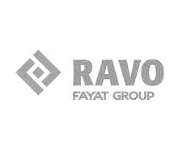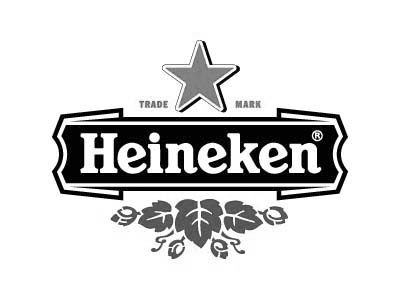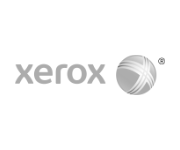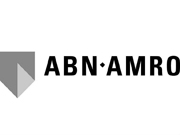Full advantage of the diversity and strength in the team (feedforward workshop case)
Liandon is Alliander’s expert centre. Liandon designs, manages and maintains complex grids and large (industrial) plants, with it’s 750 employees. The role of the fast-growing Strategic Environmental Management (SOM) team is changing at Liandon. To run through this process properly, the result oriented group wanted to find answers to the question: what are our strengths? The feedforward workshop will help them out. ‘It’s really nice to look at yourself and others in this way.’
Liander’s SOM team works for operators, energy suppliers and contractors, to name a few, on energy infrastructure projects and projects aimed at sustainable area development. In addition, the department is not only responsible for the technical legal settlement, but also ensures that a support base is created for the project in a relevant district or region, among other things.
department is not only responsible for the technical legal settlement, but also ensures that a support base is created for the project in a relevant district or region, among other things.
In 2008, when Alliander split off from Nuon (Vattenfall), the team only consisted of five people. Now there are 25: in addition to manager Karin van der Ploeg, there are consultants, project managers and lawyers. “The most significant change in recent years is that we are already thinking along from the beginning of a project, while we used to only join at a later stage, for example, to apply for the necessary permits”, Karin explains.
There are many large projects in the pipeline for grid operator TenneT and Alliander over the next few years. Karin: “We have a lot of work to do over the next two years. So we can’t keep doing it the same way as always, we need to take a smarter approach.”
Knowing where our strengths lie as an individual and as a team
The team is therefore at the verge of change. “We’ve always done everything ourselves, but now we’re considering to outsource some operational tasks and focus more on directing”, says Karin. “The extent to which this occurs, will vary per project. And it is exactly here that our pitfall lies: We are very involved professionals and want to bring projects to a successful conclusion, which means that we perform many tasks ourselves.”
To accommodate the change as best possible, the team firstly wanted to sketch a clear profile of themselves. Karin: “We will need to decide very carefully where to use which people, for which projects, and how we will use this diversity and strength in the team. Then we will need to know exactly what we, as a team, are good at, but also what the individual team members are good at.” This is part of the reason why the team wants to grow and improve, and to work on the subject of giving and receiving feedback.
The reason why the SOM team called on feedforward analyse™ , was mainly thanks to the positive outlook of this approach. Itske van Lith, senior consultant in the SOM team: “We often have training courses in teams, and you have to be willing to open yourself for such courses. Furthermore, positive feedback is much better than focussing on negative things, or things that aren’t there.”
Positive dialogue about our qualities
Muriel Schrikkema developed the feedforward analyse™ because neuroscience research shows that people have difficultly accepting feedback on their performance. The feedforward analyse™ provides insight into the qualities of teams and team members, and helps them to build on this.
All SOM team members completed the on-line feedforward analyse™ in advance, and also asked a selection of their colleagues in the team, together with other colleagues within the organization and external associates and acquaintances, to complete the form. The following top five highest scoring qualities, emerged: Is reliable and / or honest, he / she does what he / she says and says what he / she is doing, displays ownership, is focused on results and people centred, and asks questions. Karin was very satisfied with the first analysis. “Our strength is indeed that we are very reliable, and feel very connected with our assignments or the various projects.” Itske adds, “We are very good at evaluating our surroundings, ‘what’s going on there’ and translating that into ‘how you can use it in projects’ and ‘how can you set-up a project on that’. Establishing a link from the outside to the inside.”
During the workshop, the team members were first given an introduction by Muriel on the background of the feedforward analyse™. The team then paired up and started working on each other’s individual qualities. After all, addressing and coaching each other in a feedforward manner, to perform a specific function even better, takes a lot of practise. It became clear that a different way of thinking was definitely needed in order to give feedforward.
The group got the hang of it, and that brought the dialogue on the area for improvement, under way. In the following assignment, the group examined the qualities necessary to ensure that the three sub-teams – consultants, project managers and lawyers – perform even better. That resulted in a lively discussion. Next we examined which of these essential qualities are already present within the sub team, what is everyone’s unique contribution within the team and how does it enable us to further improve the performance of the team. Looking at the improvement in a positive way, without casting blame, based on the existing qualities, resulted in wonderful dialogues.
What now
Concrete agreements were made with one another within the various sub teams, in order to actually give shape to the improvement. The project leaders immediately drew up their schedules to go in further search of each other’s qualities, together, in order to better utilize everyone’s added value during troublesome projects.
As the smallest club in the team, the lawyers shook off all modesty from themselves and actively went looking for ways to stand out more clearly and to share even more of their knowledge with colleagues. And the consultants took on the role of guarding the initiated positive dialogue and actively working on improving mutual cooperation.
Karin will use the individual results of the analysis in the development and assessment interviews with her team. Also serves as an aid when hiring new colleagues. “We now have a better impression of ourselves as a team, thanks to the workshop. It’s really nice to look at yourself and others in this way. I now have a better impression of the development potential of this group.”
Would you also like to utilize the full potential in your organisation? Create a positive culture? Improve mutual cooperation? Or put together more successful and diverse teams?
Please contact us for more information or the possibilities!






